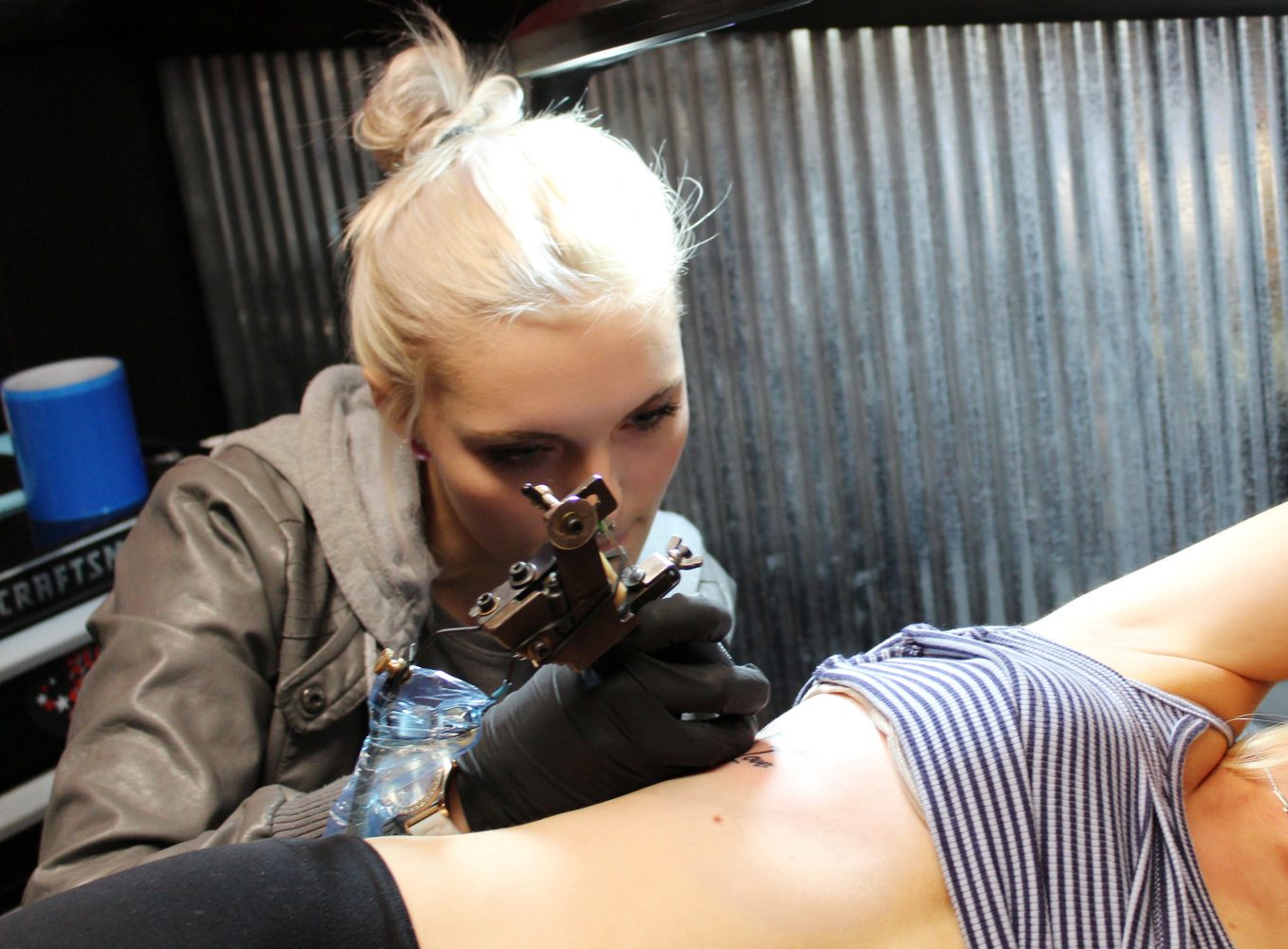Daisy Coleman hopes documentary helps heal others
In a small town in the middle of Missouri, Daisy Coleman sits at the side of a red leather chair. Her tattoo gun purrs as she carefully draws on her client. She is a freshman art major at Missouri Valley College, pursuing her dream of becoming a tattoo artist while competing on the women’s wrestling team. However, just a few years earlier, she didn’t want to live.
On Jan. 8, 2012, a night of drinking alcohol took a turn for the worse when Daisy, then 14 years old, and a friend decided to sneak over to a popular senior boy’s house. She was a freshman in high school in Maryville, Missouri. Daisy became intoxicated to the point of blacking out. Matthew Barnett was accused of taking her into his room and raping her.
Barnett ultimately pleaded guilty to child endangerment after he and his friends dropped her off on her front porch in freezing temperatures. Her mother found her a few hours later in the snow.
In the fall of 2013, an investigation and legal case against Barnett went viral, and her life was forever changed. Now, she is using the case as a platform to bring awareness to Title IX rights and speaking out against rape culture.
“Audrie and Daisy,” a documentary featuring her case, will be available on Netflix and released in theaters later this year. She wants to motivate women across America to speak out about their assault cases, and she has encouraged her brothers to become voices against lack of respect toward women.
One of Daisy’s brother’s, Charlie Coleman, is a senior at Baker University and was good friends with Barnett before Jan. 8, 2012.
“It has made me a lot less trusting of people. I’m a lot more skeptical,” Charlie said. “I still have that happy personality, I just carry myself a little differently, with more caution.”
Charlie expects that the documentary will bring awareness to what can happen to families and the people surrounding the victim.
Daisy said she was at first hesitant about participating in the documentary; however, when her case went viral, she felt a responsibility to tell her story.
“I almost felt this duty, almost like serving and protecting,” Daisy said. “I felt it was necessary for me to do because of other people in my situation.”
She hopes to see sexual assault cases taken more seriously, both in the legal system and society as a whole. She is all too familiar with the depression that comes along with the bullying, stress and trauma of rape.
“It changed me as a person, but at the same time, it set this path that I decided I wanted to go down,” Daisy said. “I didn’t want to just go with the punch line and what everyone else thought. I wanted to go against that.”
Daisy has come a long way since multiple suicide attempts, but she understands some victims never overcome the horror, bullying and isolation that they endure after rape.
The other case featured in the documentary involves Audrie Pott. She was just 15 years old when three boys at a party in Saratoga, California, sexually assaulted her. She committed suicide eight days later. Her parents have carried on her memory by sharing her story.
“Audrie took her life because of her assault and the bullying that followed. This has to be taken more seriously,” Daisy said.
Both Daisy and Charlie want men to be aware of the consequences if they do not speak out against lack of respect toward women, which they say feeds the acceptance of sexual assault.
“Kids are scared to speak against the crowd. That’s the biggest problem,” Charlie said. “If they don’t stand up and say something, they’re basically saying sexual assault is OK. Instead, they stand there and watch it. They let it happen because they think, ‘Well, it’s all innocent and fun. I haven’t heard no.’”
Charlie now works with baseball teams and plans to join an organization called Coaching Boys into Men in order to speak about being a positive role model.
Daisy is also involved in organizations educating and bringing awareness to Title IX rights and sexual assault, and she has used her voice to give advice to others pursuing a legal case after being sexually assaulted.
“It has given me a foot in the door to be able to talk to other people and continue with the advocacy for our younger generation,” Daisy said.
Daisy is an ambassador for an organization called PAVE, which stands for Promoting Awareness and Victim Empowerment.
“We are a group that goes around to different high schools and we speak to high school students about their Title IX rights in situations such as domestic violence, assault or in some cases, actual rape,” Daisy said.
Daisy will continue to advocate and educate about sexual assault; however, she said she has not allowed the case to define her.
She is an apprentice at Gentleman’s Ink, a tattoo parlor in Marshall, Missouri, and uses her art as a creative outlet.
“I have a really thick skin to people’s opinions now. As a wrestler or as an artist or even just as an advocate, I’m going to receive a lot of criticism,” Daisy said.
Daisy said her family has overcome adversity and become stronger, more educated and more aware of the true hardship that comes along with rape.
Charlie believes Daisy’s situation has pushed him to be an even better person.
“I try to be a positive role model in the best way I can,” Charlie said.
Daisy says one of the most important lessons regarding victims of sexual assault or abuse came from Audrie Pott’s mother.
“A lot of times you hear someone speak out about their case, (and) a lot of people aren’t going to start by believing. Audrie Pott’s mom said to start by believing, that it could really save a life. I live by that now. Just start by believing,” Daisy said.







